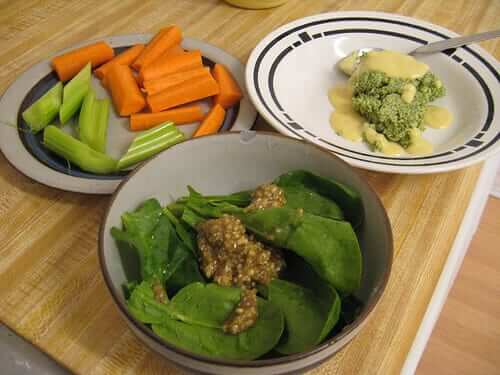Hypoglycemia Diet – Best and Worst Food to Eat
Hypoglycemia does not only happen to diabetics. Virtually anyone can have a hypoglycemic episode where the blood sugar level drops to an unusual low. Unfortunately, it’s common for some to try and pack as much sugar back into their system as possible, which worsens the condition. Knowing which foods for hypoglycemia you should eat when…
This post may contain affiliate links. Please read our disclosure policy.
Hypoglycemia does not only happen to diabetics. Virtually anyone can have a hypoglycemic episode where the blood sugar level drops to an unusual low. Unfortunately, it’s common for some to try and pack as much sugar back into their system as possible, which worsens the condition. Knowing which foods for hypoglycemia you should eat when it occurs and which foods to steer clear from can help you and your loved ones recover quickly and prevent further damage to your health.
What causes hypoglycemia?
This condition or state of the body is commonly associated with diabetes and rightfully so. Blood sugar drops when there is not enough insulin. When you eat carbohydrates, they break down into glucose. Glucose pairs up with insulin to be transported to cells and give you energy. Since diabetics don’t produce insulin naturally, the pancreas need to secrete whatever insulin it has to help the glucose arrive where it is needed. When this happens, sugar levels drop significantly and symptoms manifest.
Too much insulin, whether produced by the pancreas in non-diabetic people or injected by diabetics, can also cause hypoglycemia. Other causes include under-eating, kidney malfunction, high alcohol intake, medication and tumors.
What are the symptoms of hypoglycemia?
Symptoms often include hunger, tiredness, trembling, heart palpitations and anxiety. In more serious cases, you might experience dizzy spells, disorientation, confusion, poor concentration, seizures and even becoming unconscious. You can improve minor symptoms by consuming foods for hypoglycemia but will need urgent medical attention for severe instances.
What are the best foods for hypoglycemia?
A diabetic diet of complex carbohydrates, protein and healthy fats should do the trick. Complex carbohydrates are those present in whole wheat breads, pastas and brown rice. Because it takes longer for the body to turn them into sugar, you can avoid a sudden sugar spike which is as harmful to your health as a sugar low. Many fruits and vegetables like sweet potatoes, squash, broccoli, cauliflower, peppers, berries, pears and apples contain good carbohydrates that will help normalize your sugar. For proteins, go for chicken, fish and meat, and avocados, guacamole, nuts and olive oil for healthy fats.
The aim of eating foods for hypoglycemia is to even out the sugar in your blood and avoid extremes.
What are the worst foods for hypoglycemia?
Sugar, especially granulated sugar, is a definite no-no. Whether you want to relieve the symptoms or want to prevent them, it is best to stay away from foods that contain glucose, fructose, sucrose and dextrose. Packaged and processed foods tend to have more sugar than they let on, especially fruit juices and sodas, which is why you should try to eat plants, meats and seeds in their natural form.
Baked treats are some of the worst foods for hypoglycemia. They contain an excessive amount of carbohydrates and will metabolize quickly. You will go from a sugar low to a high and back to another low in no time. Alcohol is another trigger and you should avoid drinking on an empty stomach at all costs.

Leave a Comment